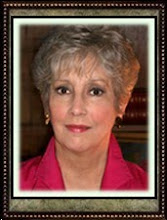Wednesday, September 29
Today, I bring you one of my favorite storytellers, Billy Coffey. Be sure to visit his site BillyCoffey.com.
How the Other Half Lives
“Do not set your mind on high things,
but associate with the humble.”
(Rom. 16b NKJV)
Let me tell you about Danny, the richest person I know.
His father owned a construction business that through hard work and entrepreneurial skill grew from one crew of five to ten crews of twelve. Migrants, mostly. Of questionable legality. But this was the sixties, and such things weren’t the issue they are now.
Danny was groomed from a young age to take over the business. At twelve, he began working alongside his father’s employees during summer vacation. It was backbreaking work, sweaty and dirty, but his father was adamant. Work your way up, he told Danny. That’s the best way.
The thinking behind that was simple. If Danny had a working knowledge of how to build, the business side of building would come easier. That was true. But also true was that Danny got to see how the other half lived. The people he worked with—the ones who hammered the nails and laid the brick—didn’t go home to big houses or dine in fancy restaurants. They were the ones who scraped by on what little Danny’s father paid them.
And it was little. Not even minimum wage. No benefits, no insurance, no vacation time. That’s about the time Danny pieced together why his father preferred the migrants. They weren’t in much of a position to complain.
His father rationalized his actions in the way we all sometimes rationalize ours—he spoke of the greater good. He talked of the good life he provided for his family and the successful business Danny would inherit. “That’s just the way the world works,” he told Danny one day. “People like us will always be more important than people like them.”
Fast forward forty years.
The construction company Danny owns no longer consists of ten crews of twelve men. It’s now thirty crews of fifteen. They are still mostly migrants, though he makes sure none have any legal question marks. Most days you can catch him at home with his wife and two children, along with however many of his employees stop by for dinner—always a few, most times many, and all are welcome.
Danny’s company has grown far beyond anything his father thought possible. He still builds houses, but now also strip malls and apartment buildings. He even pitched in on the new hospital just down the road. He always makes time for churches (Danny charges only for expenses on those and never takes a dime for himself) and has a fondness for charities like Habitat for Humanity.
If you’d see him passing you on the road in his old truck and his dirty work shirt, you’d never imagine he’s a millionaire.
That’s the way Danny likes it.
Ask him why, and he’ll tell you it’s because he knows how to run a business. He’s worked his way up, you see. He’s seen the other side. He’ll tell you without blinking that his thoughts aren’t on getting more but giving more.
And he’ll tell you that in the end, it’s his father’s workers and not his father who’s made him who he is.



























